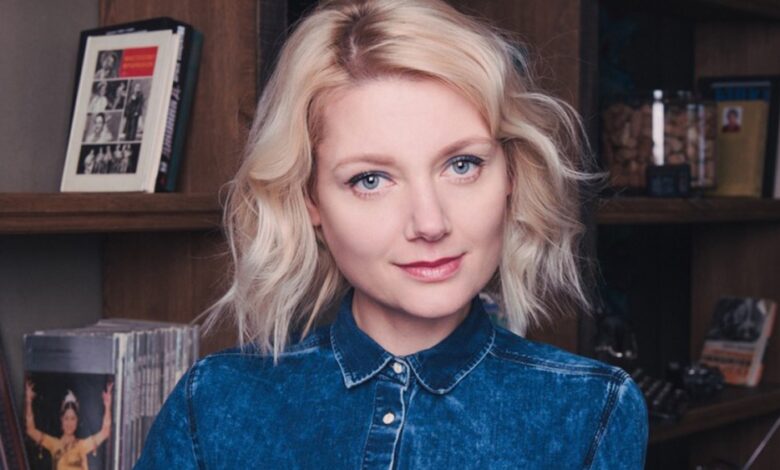Kateryna Vyshnevska wins honorary TV Beats Producer Award

Ukrainian Kateryna Vyshnevska will receive the first ever Honorary TV Beats Producer Award in Tallinn. But she has no plans to slow down anytime soon, teasing upcoming shows “Moloch” and “A Girl from Tallinn.”
“Moloch” is set in the contemporary world of high politics and secret service intrigue in Central Europe and is produced by Bionaut (Czech Republic), Raketa (Slovakia) and Ukraine’s Film.UA. A political thriller “inspired by today’s realpolitik,” it begins with an attempted assassination of the Czech president, echoing recent attacks on Trump and Slovak Prime Minister Robert Fico, she says.
“It’s an alternate universe, similar to ‘Tehran’ on Apple TV+. Moloch was this ancient, all-consuming god and it is a metaphor for politics, which grinds through everything and requires victims and sacrifices. We filmed in Ukraine, which was great. Putin is crazy, so you never know when he won’t suddenly drop missiles on Kiev. But it is so positive for our sector if people can get work.”
“Moloch” will premiere on Canal+ in 2025 and marks Vyshnevska’s first independent project after stepping down from her role as head of development and co-productions at Film.UA. She is behind the anthology series ‘Those Who Stayed’, ‘Hide and Seek’ and ‘Citizens at War’, for which Keshet opted for an English-language remake.
‘Partyzanky’, a co-production between Britain and Ukraine, and the crime story ‘A Girl from Tallinn’ are also in the works, with the latter marking a collaboration between Estonia, Ukraine and Bulgaria.
“My mission in life is to take CEE storytelling to the next level. That’s what my work has always been about,” she says.
‘A Girl from Tallinn’ will appeal to genre fans, but also brings together past and present. In our region the past has never really disappeared. We have this bloody legacy of communism and it sticks with you even if you haven’t experienced it yourself. It is deeply ingrained in people’s psyches. We are still looking for some financing, but with a bit of luck we will go into production in 2025.”
Moloch
Thanks to Kateryna Vyshnevska
It’s a good time for CEE shows, Vyshnevska argues, despite the ongoing political unrest.
“People are scared and confused, but I am optimistic. Things will get made,” she says.
“It’s a good time, but it took a while before we reached a level where we are seen as a global player. The problem with the CEE region was that we are made up of a bunch of small countries. No one could sustain the production of premium dramas. When you look at others [non-English] successes, from Scandi noir to Turkish telenovelas or Israeli political thrillers, it’s all about volume. We are finally getting there.”
“There are plenty of good shows, the level of creativity has increased and the crews are experienced. It finally became a business, but it took 10 to 15 years for local producers to try to make shows that weren’t just daytime medical soaps.”
According to Vyshnevska, “no co-production happens randomly.”
“When you see success, it feels like it came easy. But behind every show that has ended up outside Ukraine are years of hard work.”
In order to grow, makers and producers must think about the audience. “Unless you’re Scorsese, but it takes time to get to that point. And yet people keep forgetting!”
They also have to think about themselves. “I learned this lesson the hard way, but not paying attention to your mental health will not make you a better producer or a better employee. It makes you a worse producer and a worse collaborator,” she emphasizes, talking about her own burnout.
“After that I didn’t work for a few months. And yet, looking back at 2024, I still went to 12 different festivals. Over the years I have been told: ‘You are the face of Ukraine, you are everywhere.’ This is the danger of what we do, and we must learn to balance it. We need to talk about burnout because what we do is based on relationships. Creativity is not just about the script. To be creative, you have to get into the right head space.”
With the Ukrainian Content Club, a fund aimed at supporting the industry affected by the Russian invasion, and still existing as “a general brand” – “it has fulfilled its direct function: creating some stories. Now it is also a way for Ukrainian players to work together” – Vyshnevska thinks of Ukraine – despite her international ambitions.
“When I left Film.UA, I thought: ‘I can tell all kinds of stories that don’t necessarily have to be about Ukraine.’ Then I realized maybe I can’t. Projects I am working on now still have this Ukrainian component. But they will be much bigger.”




